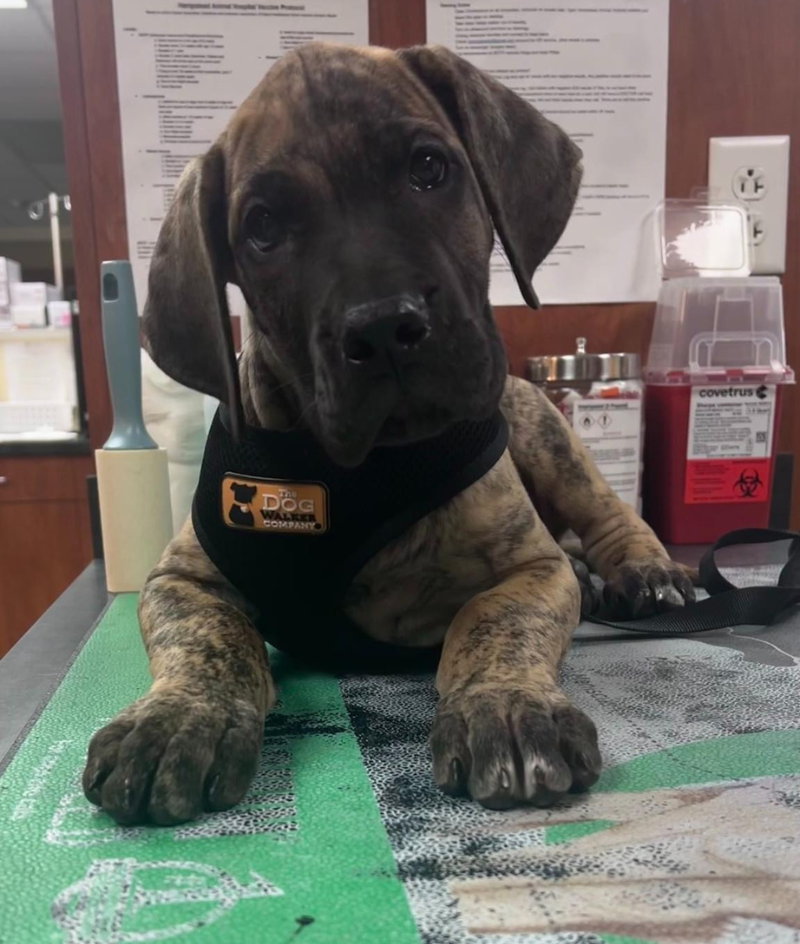Surgical FAQs
Answers to some of your most common surgery related questions:
What happens at the pre-surgical appointment?
We require a pre-surgical appointment where we will discuss the procedure and explain all options available for the health and safety of your pet. We will address any concerns you may have, administer a complete physical exam, and draw blood for analysis. At this time it is also advisable to consider other minor procedures performed while under anesthesia, such as dentistry, ear cleaning, or microchip identification.
Is the anesthetic safe?
Today’s modern anesthetic monitors have made surgery much safer than in the past. We adjust the amount and type of anesthetic used depending on the health, age, and weight of your pet. For most procedures, your pet will have an IV catheter along with fluids administered during surgery. This helps your pet’s recovery and provides an additional level of safety.
Will my pet need blood work?
We require a pre-anesthetic blood panel for most procedures as even healthy-looking animals can have undetected organ problems. Blood work enables us to assess these issues as well as your pet’s overall organ function ensuring that the liver and kidney can handle the anesthetic. This reduces the risks of anesthesia. In many cases, a baseline panel is all that is needed. However, in some age groups more comprehensive blood work, including a complete blood cell count, chemistry and urine test provides the best information about your pet’s overall health and well being.
What is pre-anesthetic blood work?
Prior to surgery, a blood sample is collected from your pet. Tests are conducted on the sample either in the clinic or sent to an outside reference laboratory. These tests check the organ functions, blood counts and clotting function of your pet. The pre-anesthetic blood screening is done to assure safety during surgery and the ability to heal following surgery.
Where is the blood tested?
We offer in-house as well as off-site laboratory blood testing tailored for each individual animal’s age, breed, sex, and physical condition.
What if the blood work reveals a problem?
If serious problems are detected, surgery can be postponed until further assessment can be completed.
Should I withhold food before surgery?
You will need to withhold food for at least 8 to 10 hours before surgery although water is allowed until the morning of surgery. It is important that surgery is performed on an empty stomach to reduce the risk of vomiting during and after anesthesia.
What is the protocol for dropping off and picking up my pet on the day of surgery?
Please allow 5 to 10 minutes of time to fill out paperwork and make decisions on the blood testing and other options available when you drop your pet off for surgery. Please allow the same window of time when picking up your pet to go over your pet’s home care needs.
The ideal time to perform other minor procedures, such as dentistry, ear cleaning, or microchip identification is while your pet is already under anesthesia. If the pet’s primary decision-maker is not the same person dropping off the pet, please make sure you have either scheduled this at the pre-surgical appointment or have called ahead.
Will my pet have stitches?
For many surgeries, we use absorbable sutures that will dissolve on their own and do not need to be removed. Some surgeries, especially tumor removals, however, do require skin stitches. With either type of suture, you will need to keep an eye on the incision for swelling or discharge. (Most dogs and cats do not lick excessively or chew at the incision, but this is an occasional problem.) If there are skin sutures, these are usually removed 14 days after surgery. You will also need to limit your pet’s activity level for a time and discontinue bathing your pet for the first 10 days after surgery.
Will I need to administer any post-surgical medications for my pet's health and comfort?
Anything that causes pain in people can be expected to cause pain in animals. Pets may not show the same symptoms of pain as people. Pain medications needed will depend on the extent of the surgery performed. For all our patients, we administer both pre-surgical, and post-surgical medications that help with any discomfort your pet may have. We often send additional oral medication home with you for the days following surgery to lessen the possible discomfort and to reduce the risk of infection.

